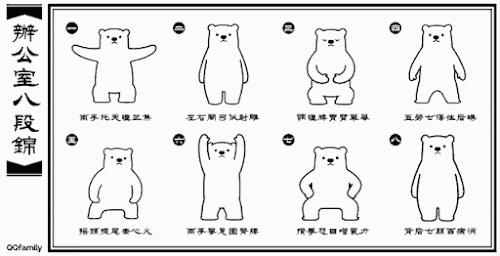How Children Can Benefit from Tai Chi and Qigong
In today’s fast-paced, tech-saturated world, children are often bombarded with constant stimulation, academic pressures, and a myriad of extracurricular commitments. Amid this whirlwind, practices like Tai Chi and Qigong offer a refreshing, grounding alternative that can significantly support a child’s mental, emotional, and physical well-being.
While often associated with older adults, these ancient Chinese practices are remarkably beneficial for children too. Their gentle, flowing movements, deep breathing, and focus on inner calm make them ideal for young minds and bodies navigating the demands of growing up.
What Are Tai Chi and Qigong?
Tai Chi is a form of martial art that focuses on slow, controlled movements and balance, often described as “meditation in motion.” Qigong, on the other hand, is an even older practice that combines movement, breathing techniques, and visualisation to cultivate and balance the body’s vital energy, or qi (pronounced “chee”).
Both practices promote mindfulness, physical coordination, and a deep sense of inner peace—qualities that can be invaluable for children in today’s overstimulated environment.
1. Improved Focus and Concentration
Children are naturally curious, but in an age of short attention spans and constant digital distraction, concentration can be a challenge. The slow, deliberate nature of Tai Chi and Qigong encourages young practitioners to focus on their breath and movement, gradually improving their attention span and ability to concentrate in other areas of life—like schoolwork or creative projects.
2. Emotional Resilience and Stress Relief
Even children experience stress—whether from school, social dynamics, or family changes. Tai Chi and Qigong offer a calm, safe space to process and release anxiety. The breathwork and mindfulness inherent in these practices activate the parasympathetic nervous system, reducing stress hormones and promoting a sense of calm. Over time, children may become more emotionally resilient, better able to cope with life’s ups and downs.
3. Physical Coordination and Balance
Growing bodies need opportunities to develop motor skills, balance, and strength. The flowing sequences of Tai Chi and the structured postures of Qigong challenge a child’s coordination in a gentle way, improving body awareness without the competitive pressure found in many sports.
4. Self-Confidence and Self-Awareness
Practising Tai Chi or Qigong can help children build confidence—not through external achievement, but through an internal sense of mastery. They learn to listen to their bodies, trust themselves, and enjoy a quiet form of success that doesn't rely on comparison with others.
5. Connection to Stillness
In a culture that prizes activity and productivity, teaching children to be still and present is a gift. The meditative quality of these practices allows children to pause, breathe, and connect with the present moment—something many adults struggle with as well.
6. Inclusivity and Accessibility
Unlike many physical activities, Tai Chi and Qigong are accessible to all body types and abilities. Whether a child is sporty or shy, physically strong or needs gentler movement, these practices can be adapted to suit them. There's no need for fancy gear or competitive skill—just an open heart and a willingness to try.
Bringing Tai Chi and Qigong to Young People
Introducing children to these practices can be as simple as a few minutes of gentle movement and deep breathing in the garden or classroom. Some schools and community centres now offer classes tailored for younger students, often incorporating stories, animals, or imaginative visualisations to make the sessions more engaging.
Parents and teachers can learn alongside children, making it a shared journey of discovery and calm.
Final Thoughts
Tai Chi and Qigong may seem like ancient arts for grown-ups, but in truth, their gentle wisdom speaks powerfully to children. In a world that often pulls them in too many directions at once, these practices offer a chance to slow down, breathe deeply, and grow not just physically, but holistically—body, mind, and spirit.
Whether your child is anxious, energetic, introspective, or full of beans, there’s something in Tai Chi and Qigong for them. Sometimes, the quietest path can lead to the most profound strength.
for more information please visit www.paintingtherainbow.co.uk



Even just gentle breathing can make a big difference.
ReplyDeleteBreath and movement reconnect mind and body
DeleteWonderful article. Thank you for sharing it with me
Delete